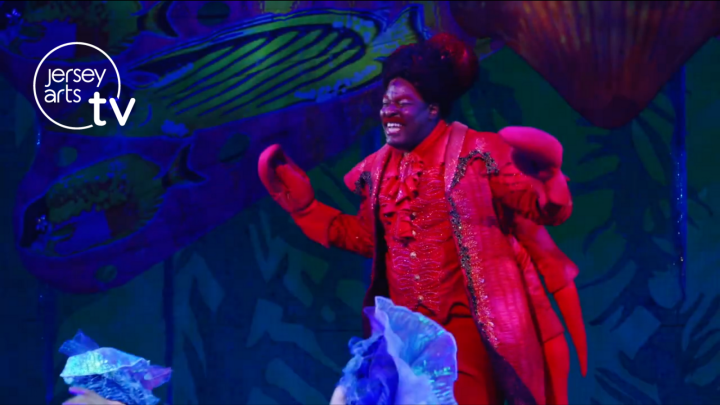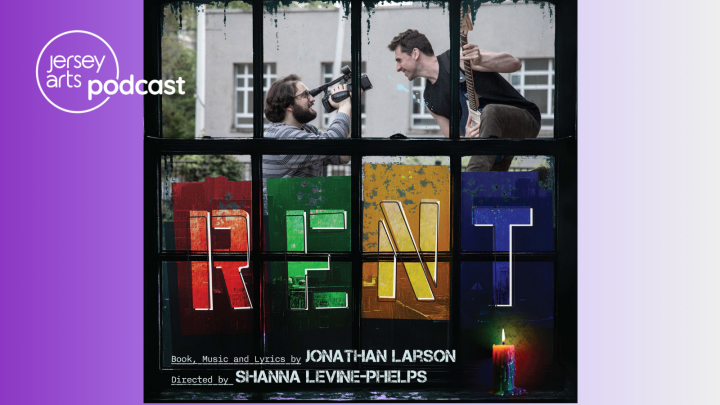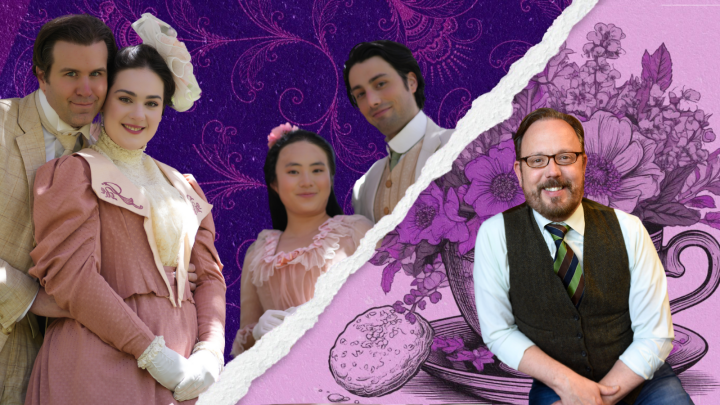John Pielmeier Plays Peter Pan's Creator in 'Courage' at Centenary Stage
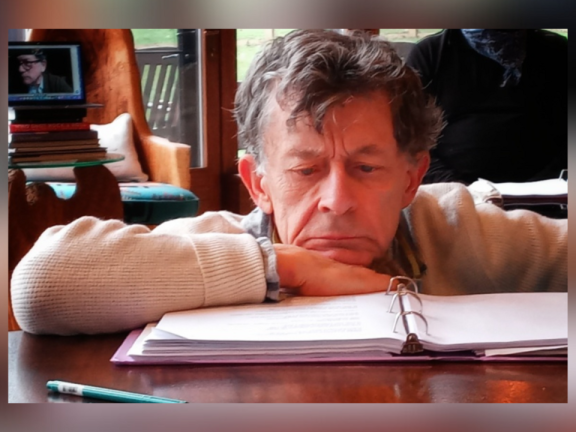
“Peter steps forth and asks the audience to applaud if they believe in fairies. What an extraordinary, risky thing to ask an audience at the time [in 1904]. The actress playing the very first Peter Pan, Nina Boucicault, stepped forth on opening night and asked this audience of sophisticated London gentry to clap hands if they believed in fairies, and the applause was deafening. She burst into tears.” As did John Pielmeier and I as he recounted this tale of the first production of J. M. Barrie’s “Peter Pan” in London, England.
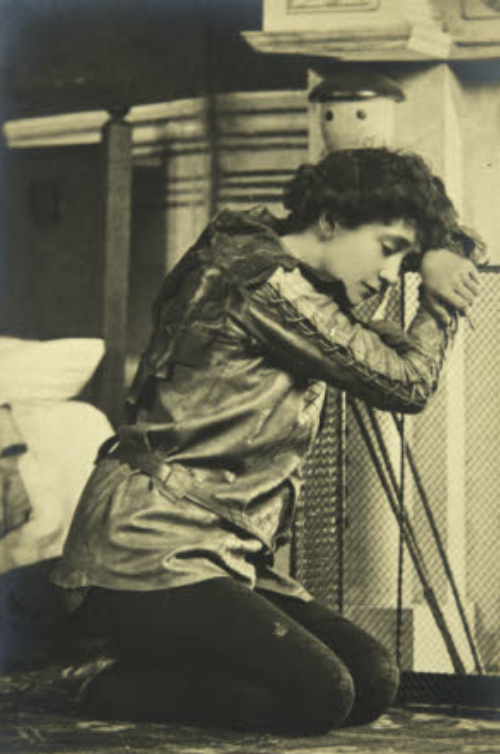
In the interest of transparency, I will note that I’ve embellished a bit here. While both John and I did get emotional upon envisioning this indelible moment in history, it would be inaccurate to tell you that there was a sudden deluge of tears, but it did get rather misty. The entirety of the interview had me quite emotional, if I’m honest. What a joy it is to speak with someone who after forty years still recounts their work, in this case, a love letter to J. M. Barrie, with adoration and a childlike exuberance reminiscent of the forever child himself, Pan.
Pielmeier is the playwright and performer responsible for “Courage” in which he portrays his hero, Barrie. The one-man show will grace the stage of the Fringe Festival by Centenary Stage Company this November 21st-24th. The title of his show is borrowed from the speech of the same name given by J. M. Barrie at St. Andrews University in 1922, delivered as his Rectorial Address to the graduating class.
“I’d say 90 to 95% of the play are Barrie’s words. I just wrote interstitial elements kind of tying everything together. Most of what I say is right out of Barrie. The conceit of the play is that, this is true, when Barrie was an older man, he was asked to become an Honorary Rector of St. Andrews University in Scotland. The only obligation that he had was to, at the end of three years, give a talk to the graduating class; which is what he did. It was the very first time he ever spoke in public. He was a tremendously shy man, and he delivered a speech called 'Courage' that became so famous that it was not only published, but that the students of St. Andrews were subsequently forced to memorize it as years went on.” Pielmeier giggles at that last truth, those poor students. Yet it is Pielmeier who actively chooses to memorize these words and repeat them all by his lonesome on a stage, evoking the spirit of his idol as years go on.
“Because I love Barrie so much and I love his words, it’s an absolute joy to perform it. I really, really love performing it. The show is maybe 80 minutes long and it seems to some people like a huge memorization project, but it’s just a part of me. These words are a part of me. The challenge and also the excitement of it is being alone on stage and responsible for and living in the spirit of Mr. Barrie. That’s what I love. It’s not at all a chore for me.”
Whether or not audiences are familiar with Barrie or Pan, Pielmeier assures me that they will enjoy the show as intended. “You don’t have to know anything about either of them to see the show. You’ll come away, hopefully, with a great admiration for him and an interest in the piece — the play or the novel [referencing 'Peter Pan'].”
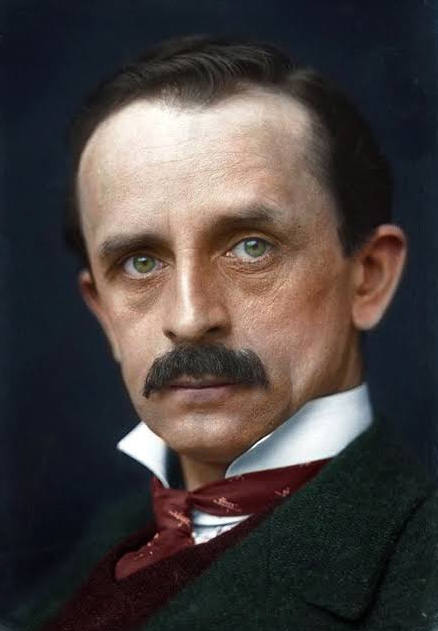
Listening to John Pielmeier speak of his admiration for Barrie and his life, it becomes difficult to conceive of a world in which one is unfamiliar with this man. He speaks of him with such high regard that it is unclear how Barrie himself is not a household name. However, his literary child is. Most of us, even the youngest generations have heard the words “Peter Pan” if only in passing. Pan is a pivotal figure in the zeitgeist, pervading psychiatry, music, film, and television.
It was a play called, “What Every Woman Knows” performed at the Actors Theater of Louisville in the late 1970’s that first introduced Pielmeier to Barrie’s work. “It just blew my mind. It was such a wonderful production of a remarkable play, extraordinarily protofeminist too, which Barrie was in much of his writing. It’s really quite wonderful.” This life-changing experience in the theater led Pielmeier to the library where he delved into his early research of James Matthew Barrie. He came across a book entitled “J. M. Barrie and the Lost Boys” by Andrew Birkin and fell deeper in love. “I found myself weeping at the end of each chapter. It was such a moving story, his life. I came away thinking ‘I want to write about this man.’ I contacted the Barrie Estate and the Hospital for Sick Children which has the Peter Pan request and got their permission to do this and composed a one-person play.” For those more familiar with the world of movies, it was also this book that inspired the Johnny Depp and Kate Winslet-led film, “Finding Neverland.”
Much as Pielmeier gushes over Barrie, I must take a moment to gush over Mr. John Pielmeier. An author, playwright, screenwriter, and performer, his talent abounds. He has received the Humanitas Award (plus two nominations), five Writers’ Guild Award nominations, a Gemini nomination, an Edgar Award, the Camie Award, and a Christopher Award. His projects have won a Gemini Award and been nominated for the Emmy Award (three times) and the Golden Globe Award, not to mention the Academy Award nominations affiliated with his film, “Agnes of God.” Impressive as all of that may be, it was his kindness and sincerity that shone brightly in this interview. He adores talking about Mr. Barrie, so much so that he is hoping to offer a talkback after at least one of his performances at Centenary Stage Company. At the time of this article, the dates for this talkback have not yet been set.
In addition to offering talkbacks, available for purchase will be his novels, “Courage: An Address to the Students of St. Andrews University” and “Hook’s Tale,” his response to Barrie’s story of Pan. “Hook’s Tale” is a memoir written by Captain James Hook, the notorious pirate and arch-enemy of Peter Pan. After speaking at length of Barrie and the boy who wouldn’t grow up, it was the idea of learning more about Hook, the boy who did grow up, that fascinated me but I’m only allotted so much digital real estate. I digress.
Upon asking John who he feels this show is for, he seems surprised. “It’s a very funny play, very touching and very moving. I think the demographic is a very broad, expansive audience. Anyone who feels young at heart in some way, or who wishes to be young again.” It is clear that he feels strongly that this show will appeal to everyone and after speaking with him and basking in the glow that is his love for the author overshadowed by his most famous creation, I have to agree.

